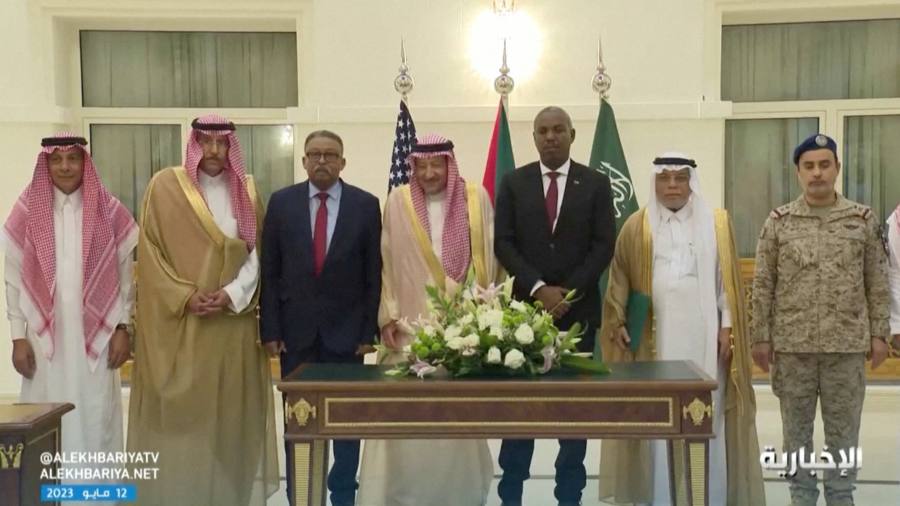Emissaries of Sudan’s two warring generals have agreed to protect civilians and allow humanitarian aid into the country after almost a month of fighting that has killed more than 600 people.
In an effort brokered by the US and Saudi Arabia in Jeddah on Friday, envoys from forces led by Sudan’s de facto president and army chief General Abdel Fattah al-Burhan and the paramilitary Rapid Support Forces of General Mohamed Hamdan Dagalo, known as Hemeti, signed a “declaration of commitment to protect the civilians of Sudan”.
The Jeddah agreement is the first concrete attempt at taming the fighting, mainly concentrated in Sudan’s capital, Khartoum, which has forced almost 1mn Sudanese to flee their homes since the conflict began in mid-April.
The agreement recognises “the obligations of both sides under international humanitarian and human rights law to facilitate humanitarian action to meet the emergency needs of civilians”, the US government said in a statement.
It added that the agreement would also “guide the conduct of the two forces to enable the safe delivery of humanitarian assistance, the restoration of essential services, the withdrawal of forces from hospitals and clinics, and the respectful burial of the dead.”
The next steps of the talks will focus on agreeing a ceasefire of up to 10 days that would be monitored by the US and Saudi Arabia.
Following a “step-by-step approach agreed by the parties”, the US said later negotiations would include Sudanese civilians and regional and international partners to work on a “permanent cessation of hostilities”.
But Sudanese analysts and civilians remain wary. Kholood Khair, director of Confluence Advisory, a Sudanese think-tank, said the deal was “not a truce nor a ceasefire”.
“It does not mention accountability for the past 27 days of mayhem and murder,” she said. “Neither does it have monitoring or observation mechanisms built in. Neither can it be implemented when both [the Sudanese Armed Forces] and [the Rapid Support Forces] have glaring command and control issues.
“It’s another document signed to legitimise the signatories as well as the thus far unsuccessful approach of the mediators,” Khair added.
Read the full article here




